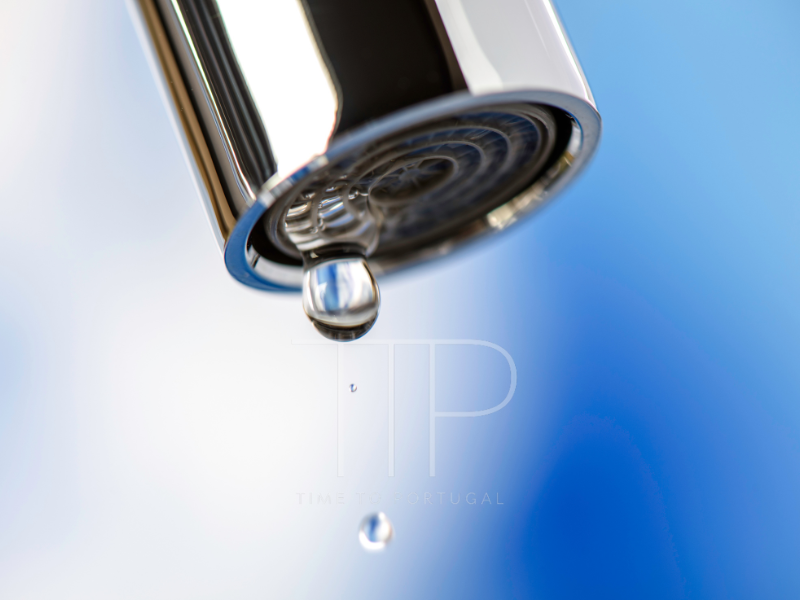The government is considering reducing water pressure and suspending second meters to reduce water consumption in the Algarve, the environment minister announced, acknowledging that the situation in the region is serious.
The announcement was made by the Minister for the Environment and Climate Action, Duarte Cordeiro, at the end of a meeting at the Intermunicipal Community of the Algarve (AMAL), in Faro, to discuss measures to manage water reserves until the end of the year.
Speaking to journalists, he said that the measures being studied “to maintain water efficiency without causing any calamity in the territory” will be defined at a meeting of the Interministerial Drought Commission next week.
“There will then be a resolution by the Council of Ministers that will bring together all the decisions underway,” he said.
According to Duarte Cordeiro, the measures being worked on to reduce urban consumption (tourism and domestic) by 15% “haven’t all been concluded yet, but the most obvious one that is being worked on is reducing pressure”.
“We’re going to analyze it technically in January and February to see if we can safely implement it. The measures are all being worked on,” he said.
The minister said that another of the measures being discussed with AMAL is the suspension of second meters and admitted that “there could be penalties for those who spend more” on water.
The minister also said that the tourism sector has taken on the challenge of reducing urban consumption “in the best possible way, realizing that reaching 15% means increasing the quality of the Algarve’s tourism offer”.
As for the agricultural sector, which will consume around 135 cubic hectometers of water in 2023, he said that in order to guarantee agricultural survival, it is necessary to reduce the water available in the Odeleite reservoir by 70% and the Funcho-Arade reservoir by 50%.
“In discussion with the agricultural sectors, we came to the conclusion that we would have to make water available to guarantee the survival of species, trees and agricultural crops, with an impact that is being assessed and measured to understand how we can support this sector,” he said.
Duarte Cordeiro revealed that a working group has been set up in the Algarve, led by the Hydrographic Region Administration (ARH), the Portuguese Environment Agency (APA) and the Coordination and Development Commission (CCDR), which will monitor all water management measures.
The group is made up of five technical groups whose mission is to monitor measures in agriculture, the tourism sector, domestic consumption, another on monitoring and another related to awareness campaigns.
“I believe that together we will achieve this goal. From the point of view of agriculture, we are aware of the penalties this implies from the point of view of disrupting the sector, which is very important and has a significant weight in the region,” he stressed.
Duarte Cordeiro also announced that the tender for the construction of the desalination plant in the Algarve will open in January, with the environmental impact study due to be completed in April and, with regard to the Pomarão project, the government intends to open the tender in September.
The minister recalled that the Algarve currently has “the lowest reserves of water in the reservoirs”, and that the government is working on measures to manage water resources “taking into account pessimistic rainfall scenarios, looking at essential consumption”.

